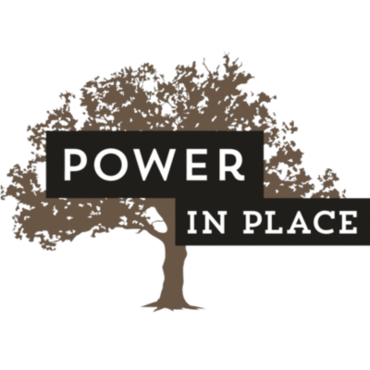BY: Hakima SmithStone, SUMMER 2020 COLLABORATOR AT POWER IN PLACE
I always refrained from speaking about feminism because I could never differentiate the movement from the definition. I believe that men and woman are equal so I guess I’m a feminist... but when I look at the feminist moment today, I don’t see a place for me, for women of color that is. When I arrived at college, my first year was my first time attending a predominantly white institution and I learned quickly that there is a difference between the way I as a black woman view womanhood, and the way my white female peers did. When I look back at my life I view it through a lens of race. I think about the way people have treated me because I’m black. I think about the things people have said to me about my hair and my skin. I revisit my old desires and the ways I understood beauty standards as a little black girl. Only then can I begin to understand the way that society has shaped me as a woman. This is where it all becomes blurry to me and I usually find myself asking “did this happen to me because I’m black or because I’m a woman?”
On the way to Port Ewen, New York, to meet town council woman Evelyn Clarke at the Sojourner Truth statue in Ulster County, I thought about the word “feminist” for most of the drive. I thought about Mrs. Clarke and wondered what her life has taught her about feminism, womanhood, blackness and what she was going to say during her interview. I’ve only been a black woman in America for a short amount of time at 21, so I was excited to discuss her experience as a black woman in this country as both a citizen and a politician. I was also a bit nervous that my experiences and options would differ from Clarke’s and that we wouldn’t have much in common because of our age difference.
Evelyn Clarke started off the interview kind of shy as we sat in her living room with all eyes on her. As I asked more and more questions she began to open up, she answered my questions and soon got lost in the memories of her childhood, family, and career. She explained to us her duties on the town council and the road that led her there and to the church. The image she painted of her childhood community in Corning, New York, of her father who became a civil rights leader in their neighborhood, pushed me to understand how much has changed in America as well as what hasn’t. I could see in her eyes that she was empowered by Sojourner Truth’s legacy and was proud of the Truth statue that stood tall in the center of her town. I learned about Truth’s childhood in slavery and how she became a freed woman who would go on to help the suffragettes and meet American heroes like Fredrick Douglass. I thought to myself, “everyone should know that many of the suffragettes only wanted the vote for white woman and that Truth fought against this by supporting both the suffragette movement and the abolitionist movement.” But this is not the feminist history most of us are taught in school. As our discussion moved from Evelyn’s life to Sojourner’s we found that Truth’s life represented the struggles of intersectionality for black women when it comes to feminism. Clarke explained that Truth was focused on survival and avoiding slavery while white women were focused on issues that Truth didn’t have time to be worried about. As our conversation went on I could see that there might be a generational divide amongst black women when it comes to the idea of feminism, but there is also a common thread that connects us. It’s the same thing that connects us to women like Sojourner Truth, it’s the desire to be a part and to attain self-validation and love.
Evelyn Clarke ended her interview by saying that black Americans have built America and deserve to be a part of all aspects of the country. She is a great example of a woman in politics who has worked hard to be a part of her community and ultimately a part of this country. She gives a voice to the people of her community.

